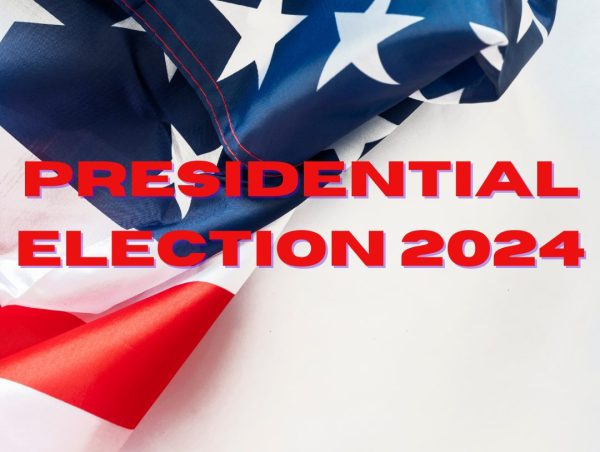
The 2024 presidential election season has included the first criminal conviction of a former president, two assassination attempts, and a switch in candidates historically late in the campaign.
Despite this rollercoaster of a race, many polls approximate that this race is still a tossup, with a slim margin separating former President Donald Trump and Vice President Kamala Harris. Much of the election comes down to the seven key swing states — Georgia, Nevada, Arizona, Michigan, Wisconsin, North Carolina, and Pennsylvania — all of which were decided by a margin of under three percentage points in the 2020 election and are currently running within the same margin in this cycle. This article covers what happened this tumultuous summer and what to expect in this election.
The Candidates:
Donald Trump– Former President and presidential candidate (R)
JD Vance– Ohio Senator, running mate, and Vice-Presidential pick of Donald Trump (R)
Kamala Harris– Current Vice-President and presidential Candidate (D)
Tim Walz– Governor of Minnesota, running mate, and Vice-Presidential pick of Kamala Harris (D)
Timeline of events that happened over this summer:
June 27: First Presidential Debate
CNN held a debate in Atlanta, Georgia, between Donald Trump and President Joe Biden. At the time, Biden was still the presumptive Democratic nominee. Watched by 51.27 million people, it was generally recognized by political pundits and polling that Trump had appeared better in the debate, with 60% of people believing that Trump had performed best, while only 21% of people believed the same of Biden (19% of respondents said they didn’t know). Biden’s performance intensified fears from across the political spectrum about his mental acuity, appearing raspy, halting, and quiet.
July 1: Trump vs. United States Ruling
The Supreme Court delivered the decision in Trump vs. The United States, a 6-3 decision split upon ideological lines in favor of Trump’s argument that he cannot be prosecuted for “official acts” while President. The Supreme Court case arose from Trump’s alleged obstruction of the certification of the election relating to the January 6, 2021, attack on the Capitol. This decision created the precedent that the President will be immune from all legal attacks while performing official duties as President, yet still liable for unofficial acts.
July 13: Trump Assassination Attempt
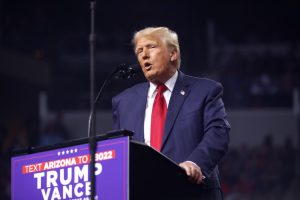
Trump was shot in the ear during a campaign rally in Butler, Pennsylvania, by Thomas Matthews Crooks, a 20-year-old man, critically injuring two other members of the crowd and killing one. After being covered by the Secret Service to protect him from the shooter, Trump rose, his face bloodied, and pumped his fist to the crowd before being escorted away. Trump sustained an injury to his upper right ear.
The incident has been called the largest security lapse by the Secret Service since the Reagan assassination attempt and caused the resignation of the Secret Service director as well as a Congressional investigation. The assassination attempt was possible because of gaps in coverage, created by miscommunications between the Secret Service and local law enforcement. As a former president, Trump is entitled to some, but less, protection from the Secret Service than a sitting president. Thus, because of the limit to the extent of their resources, the Secret Service needed to collaborate with local law enforcement, and that collaboration was disjointed and disorganized.
July 15-18: The Republican National Convention
Two days after the shooting in Pennsylvania, the Republican National Convention begins with the announcement of Trump’s running mate, Ohio Senator JD Vance. House Speaker Mike Johnson kicked off the four-day slate of speakers, which included Virginia Governor Glenn Youngkin, ex-2024 presidential candidates and opposition to Trump in the primaries Vivek Ramaswamy, Nikki Haley, and Ron DeSantis, members of the Trump family such as Donald Trump Jr. and Eric Trump, and Vance. Finally, Trump delivered a 92-minute speech, the longest in convention history, to accept the GOP nomination.
He began the speech recounting the story of the shooting, “If I had not moved my head at that very last instant, the assassin’s bullet would have perfectly hit its mark,” Trump said with a bandage still covering up his injured ear. The speech then shifted to a focus on what he called an “invasion” of illegal immigrants coming over the Mexican-American border and his economic policy, highlighting his tax cuts and pinning Harris to the economy under the Biden administration.
July 21-24: Biden stepped aside from the race, and Kamala Harris began her campaign
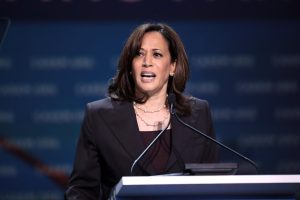
Biden’s performance in the debate kicked off a panic in the Democratic party that Biden would not be able to effectively campaign for president due to his age. Americans’ opinion of him solidified; polling showed that a majority of Americans, seven in ten voters, believed Biden was too old to be president. Following the debate, members of his party called on Biden to withdraw his campaign. Biden reiterated several times that he was mentally equipped to be president and that he was the best candidate to defeat Trump.
Then, in a seemingly surprise reversal, Biden announced on July 21 that he had dropped out of the race. In a letter posted on his X account (formerly Twitter), he stated that, “while it has been my intention to seek reelection, I believe it is in the best interest of my party and the country for me to stand down and to focus solely on fulfilling my duties as President for the remainder of my term.”
Harris began her campaign within minutes of Biden’s announcement. By the next day, Harris had secured the presumptive Democratic nomination by uniting the party around her and receiving enough state delegate endorsements. Additionally, Harris received $81 million in donations, a record for 24 hours for campaign contributions. Within two days, the race had shifted from a Trump vs. Biden rematch in which Trump was favored in most swing states to more or less a tossup.
August 6: Kamala Harris confirmed Tim Walz, Governor of Minnesota, as her vice presidential pick
A vice-presidential running mate is picked to balance the merits and weaknesses of the presidential candidate and to appeal to swing state voters. For days before the announcement, rumors swirled of Harris’ short list of candidates for the vice presidential pick, including Secretary of Transportation Pete Buttigieg, Governor Andy BeShear of Kentucky, Governor Roy Cooper of North Carolina, Senator Mark Kelly of Arizona, and the two finalists, Governor Josh Shapiro of Pennsylvania and Walz. Harris met with the two finalists for 90-minute interviews on August 4. Per the AP, “her 90-minutes with Walz stood out.” Two days later, Harris announced her decision and appeared on stage with Walz in Philadelphia.
August 19-22: The Democratic National Convention
The DNC was held from August 19 to 22 in Chicago, Illinois. The main focus of the convention was defining the newly minted Democratic nominee, Harris, and her vice presidential pick, Walz. The convention included pitches from speakers such as New York Congresswoman Alexandria Ocasio-Cortez, President Biden, Harris’ husband, Doug Emhoff, and Michelle and Barack Obama.
In Harris’ speech accepting the Democratic nomination on the final night, she told of her childhood in Oakland, California, and her experience gained while serving as a prosecutor, Attorney General of California, Senator, and Vice President. Throughout her speech, she attempted to provide a contrast between her policies and ideals with Trump’s, at one point saying, “In many ways, Donald Trump is an unserious man. But the consequences – but the consequences of putting Donald Trump back in the White House are extremely serious.” Harris was criticized for being too general and not digging into specific policy, as polling has indicated that voters don’t think they know enough about Harris’ agenda. In fact, 3 in 10 independents say “they don’t know enough to say whether Harris would make a good president.”
August 26: Robert F. Kennedy Jr. pulls out of the presidential race, endorses Trump
RFK Jr., as his name is commonly abbreviated, ran as a challenger to be the Democratic nominee against Biden up until October of last year when he switched to being a third-party candidate. Appearing at a rally with Trump, RFK Jr. said that “his internal polls had shown that his presence in the race would hurt Trump and help Democratic nominee Kamala Harris,” despite polling that had shown that he didn’t seem to have a significant impact on the numbers for either candidate. His peak polling number of 15-16% fell into sub-10% in recent weeks, and the pool of “RFK curious” voters dried up largely because of the Democrats’ candidate switch.
September 10: ABC Debate between Kamala Harris and Donald Trump
The September 10 debate between Trump and Harris took place in Philadelphia’s National Constitution Center. The debate was hosted by ABC News and moderated by managing editor David Muir and news anchor Linsey Davis. While both candidates were criticized for dodging questions and lying by their respective opposition, polling indicates that voters believed that Harris had a better performance. She outperformed Trump in an average of three polls, 57% to 34%, almost flipping the margin for the disastrous Biden debate in June. While Harris performed better in the eyes of voters on abortion and protecting democracy (23% to 9%, respectively), Trump did 20% better on the economy and 23% on immigration.
Trump was the only of the two that the moderators fact-checked, correcting Trump’s claims five times to Harris’ zero. Trump and Republicans have criticized ABC and the debate moderators for unfair questions and fact-checking, saying that it was a “three to one” and “a rigged deal,” emphasizing that he thought it was one of his better debates.
September 15: Apparent second Trump assassination attempt
58-year-old Ryan Wesley Routh was found camping in bushes with food and a rifle alongside Trump’s West Palm Beach, Florida, golf club, 400-500 yards away from the former president, but this time he was discovered and later arrested by the Secret Service before he could take a shot.
Routh, originally from North Carolina, lived in Hawaii and operated a shed-building business with his son up until the attempt. He has been an ardent supporter of Ukraine in their war against Russia, even traveling to Ukraine in April 2022 in an attempt to be recruited for the Ukrainian army. Routh voted for Trump in 2016 but seemed to shift his opinion in recent years, supporting Vermont Senator Bernie Sanders in 2020 and a Nikki Haley, Vivek Ramaswamy ticket in 2024. In a letter written months prior to the attack, Routh wrote, “This was an assassination attempt on Donald Trump but I failed you. I tried my best and gave it all the gumption I could muster.” Routh is facing criminal charges for attempted assassination, possession of a firearm by a convicted felon, and possession of a firearm with an obliterated serial number.
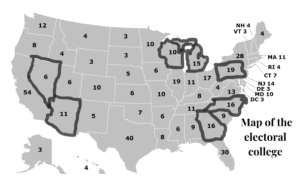
What to expect
In an election defined by large, historic events, just a small part of the electorate in the seven swing states will determine who will sit in the White House on January 20. With just 34 days until election day on November 5, the Trump and Harris campaigns are spending vast amounts to convince the few undecided voters in a sea of calcified partisans to join their camp. Anticipate a sprint to the finish from the candidates and last-ditch efforts from both camps to persuade undecided voters. And when November 5 comes, it will just be the beginning of the next chapter in America’s history. We are living through events in real time that other high school students will be reading about in textbooks one day.
Why you shouldn’t trust me:
Firstly, I want to emphasize that this is my best attempt to create as unbiased and as fair of an article for the reader as possible. My motivation is to inform you so that you can best make your own decisions, not to push an agenda on you. But this process is both inexact and extremely difficult. Although I had to both fact-check and bias-check every sentence and source that I used, some things may have slipped through the cracks, and I apologize for that. But in telling you that, I hope to motivate you to do your research; in fact, I implore you to stay up to date on the election because it’s an important part of popular culture, and increasing participation in politics is a great way to improve the efficacy of the system.
To reiterate, I hope you learned something, I hope you understand more about the current state of the election, and I hope that you do your research and don’t trust my writing. If you’re over 18, register to vote, if you feel passionate about politics join the Young Republicans or Young Democrats clubs, and if you want to get involved there are many opportunities for even us high school students to participate.





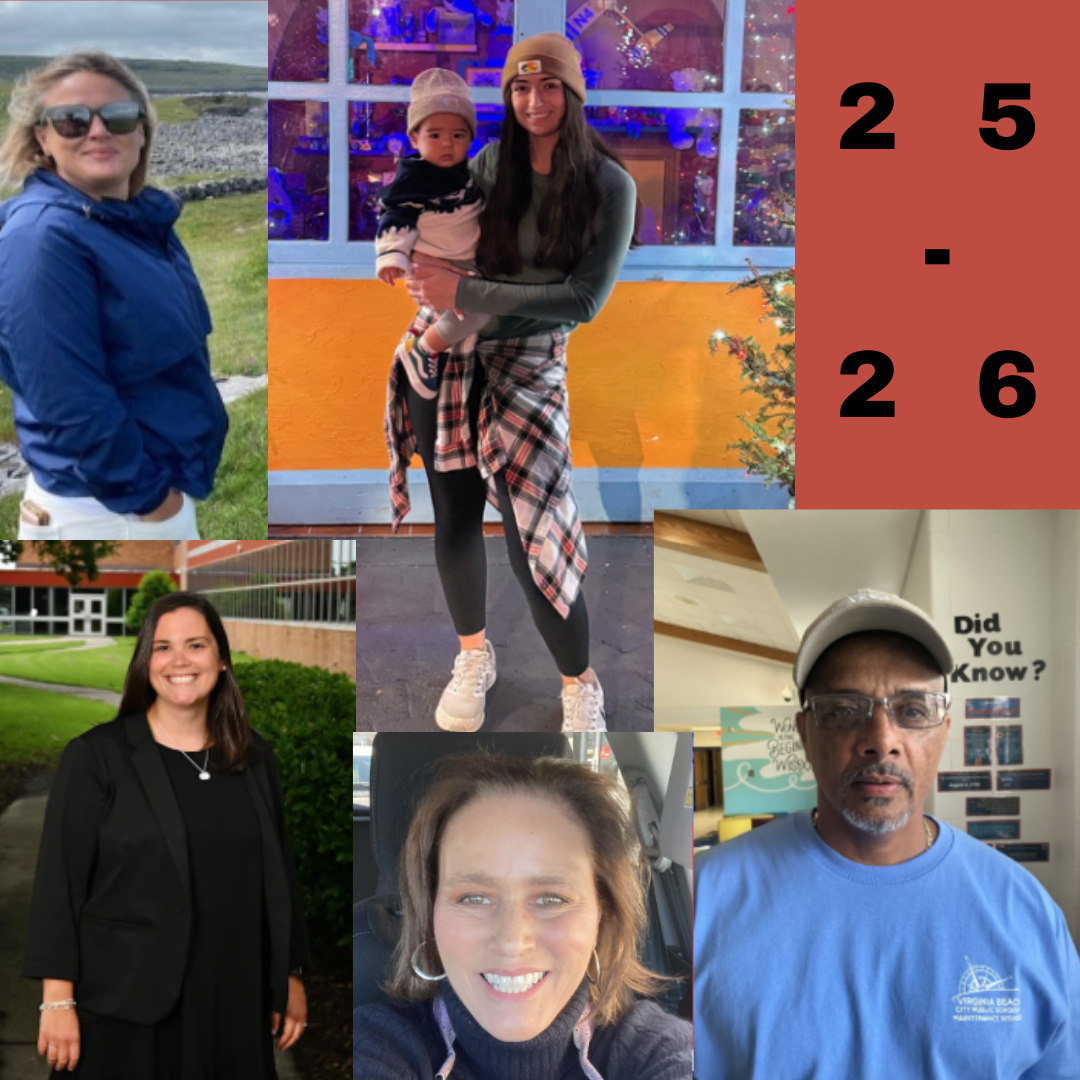
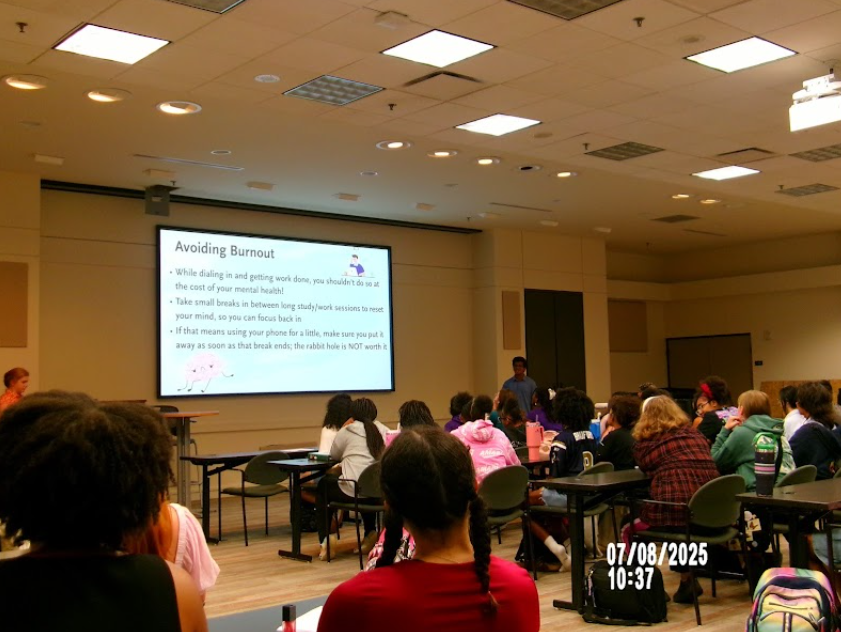


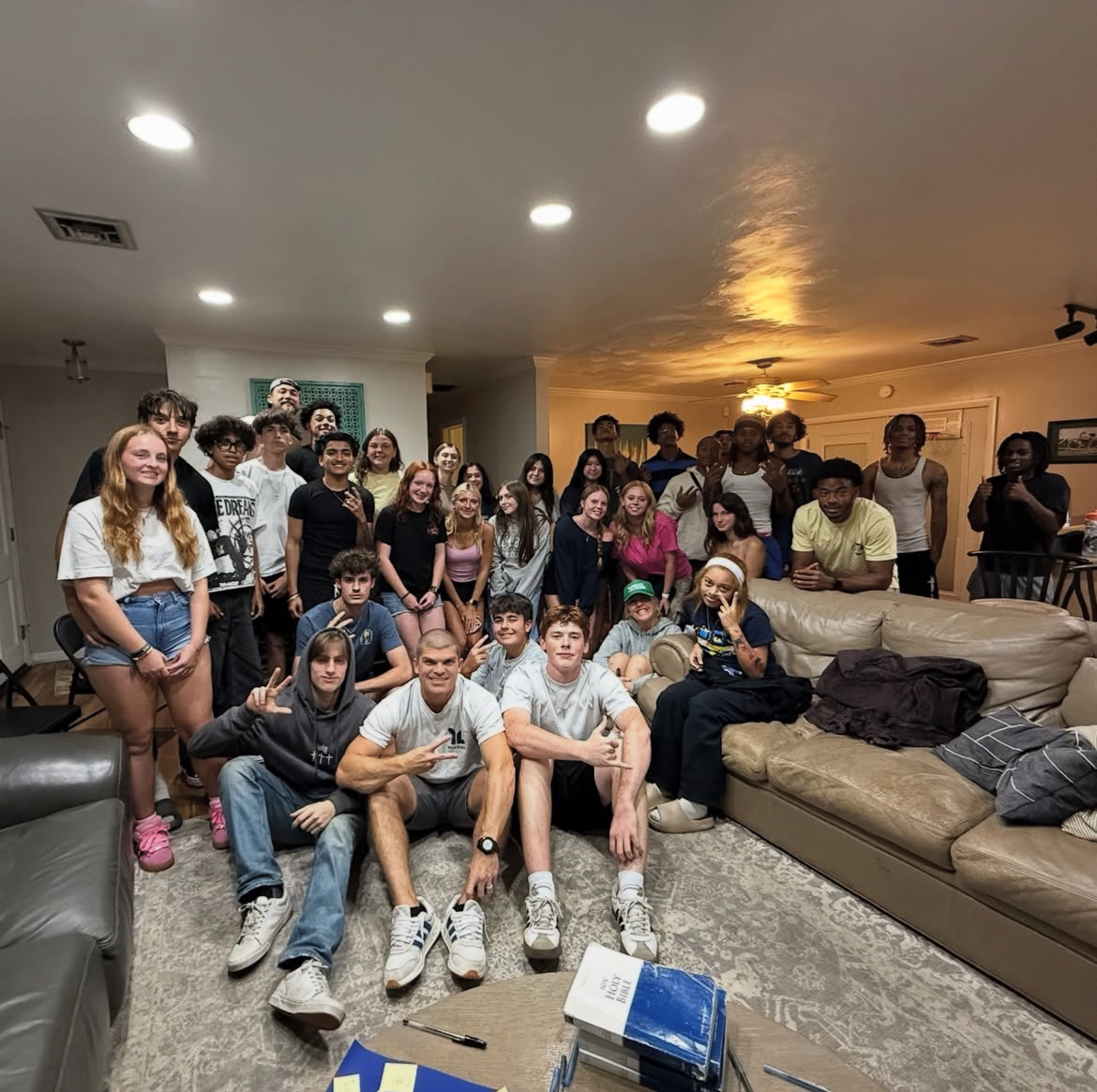
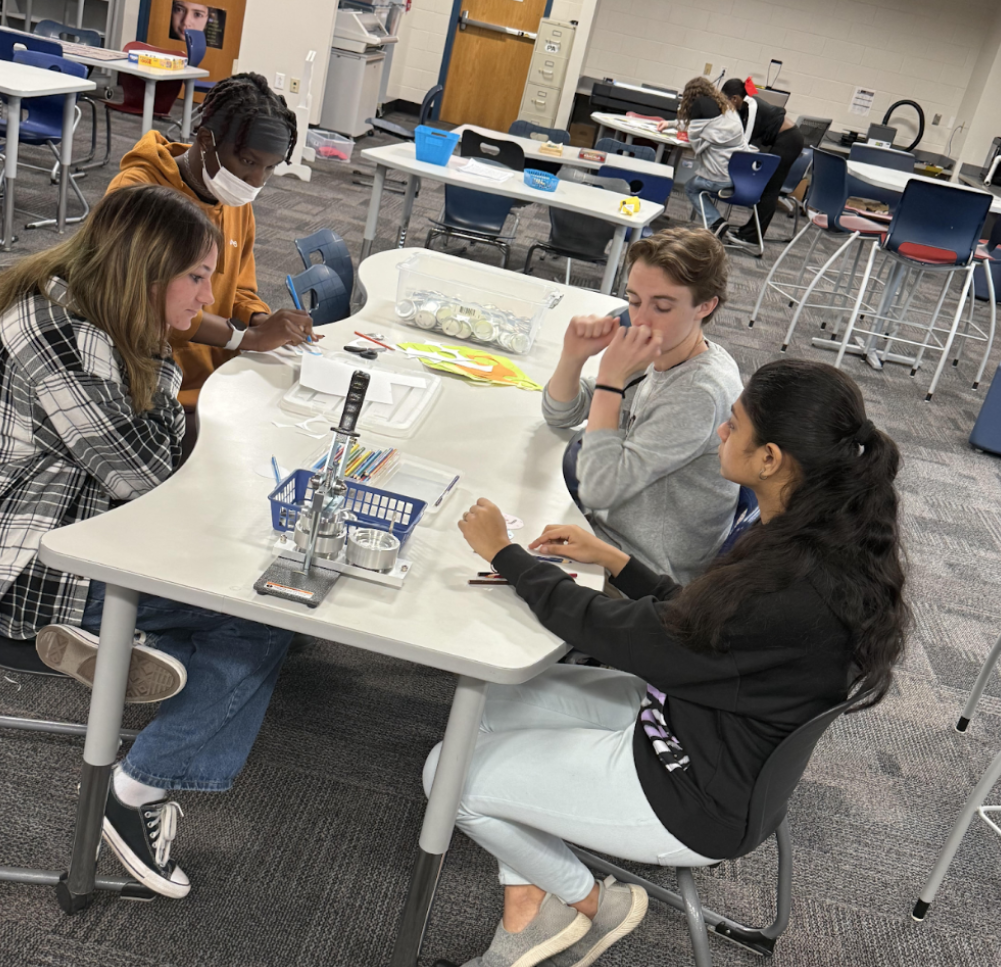

Karyl • Oct 3, 2024 at 11:26 am
What a fantastic, well documented article of events!